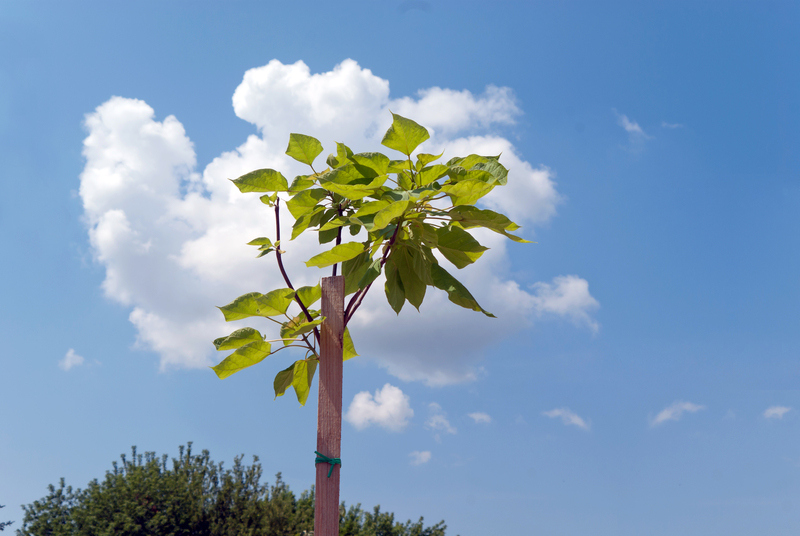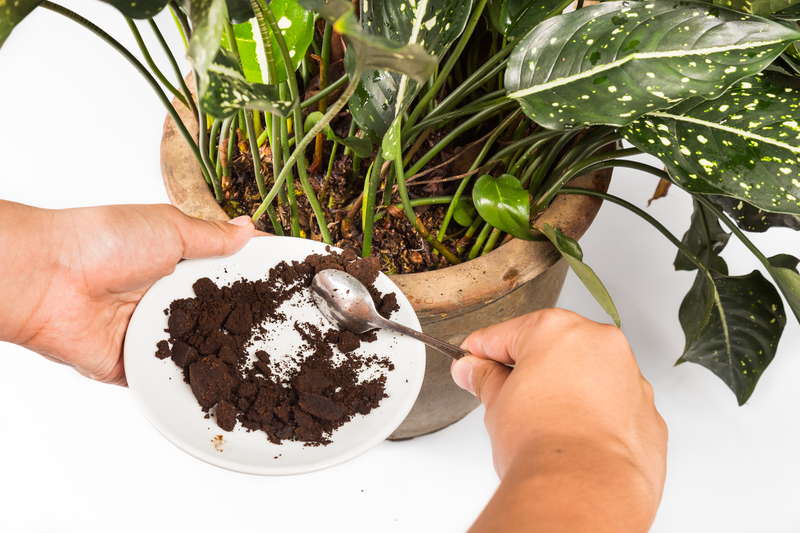Begin Your Gardening Adventure with 9 Handy Tips
Posted on 19/09/2025
Begin Your Gardening Adventure with 9 Handy Tips
Embarking on your gardening journey is both exciting and rewarding. Whether you have a spacious backyard or a small balcony, cultivating plants brings beauty, fresh air, and even food to your living environment. No need to be intimidated-- anyone can become a successful gardener with some guidance. Here you'll find 9 essential tips to help you begin your gardening adventure with confidence. These gardening tips for beginners will set you on the path to a lush, thriving garden.

Why Start a Garden?
Gardening isn't just about aesthetics; it's about cultivating well-being. A garden can improve your mental health, provide fresh produce, and give you a space to relax and connect to nature.
- Wellness boost: Gardening is a proven stress reliever.
- Fresh flavors: Home-grown herbs and vegetables are more flavorful and nutritious.
- Environmental impact: Growing plants helps support pollinators and the ecosystem.
Whether you're daydreaming about a flower-packed oasis or plan to fill your pantry with home-grown goodness, our handy gardening tips for aspiring green thumbs will help you begin your gardening adventure easily.
1. Choose the Right Location for Your Garden
Before you plant your first seed, survey your space. Whether it's a plot in your backyard or a sunny windowsill, picking the optimal location is crucial for garden success.
- Sunlight: Most plants need at least six hours of direct sunlight per day. Observe your space to identify the sunniest spots.
- Accessibility: Make sure your garden is easy to reach so you'll be more likely to tend to it regularly.
- Water source: Choose a site that you can easily water, or where rainwater naturally collects.
Gardening adventure tip: If you're unsure about sunlight, try container gardening. You can move pots around to find the perfect spot!
2. Understand Your Soil
Healthy plants start with healthy soil. Knowing your soil type improves your chances of gardening success. Get to know these basics:
- Soil Types: Clay, sandy, loamy, and silty soils all have different properties affecting drainage and nutrition.
- pH Balance: Most vegetables prefer a neutral or slightly acidic pH (6.0-7.0).
- Soil Amendments: Compost, aged manure, or organic matter can enrich and balance your soil for better plant growth.
You can purchase a simple soil test kit at a garden center and follow directions to evaluate your soil's fertility. Taking this simple step is one of the most important gardening tips for beginners.
Quick Soil Prep Steps
- Clear the area of weeds, rocks, and debris.
- Loosen the soil with a shovel or fork--about a foot deep is ideal.
- Add organic matter such as compost to improve structure and nutrients.
3. Start Small and Simple
Jumping headfirst into a large gardening project can feel overwhelming. The secret to a successful gardening adventure is starting small. Choose a simple space--like a 4x4 foot plot or a few pots on a balcony--and focus on a handful of plants to build your confidence.
- Herbs like basil, mint, and chives thrive in containers and are excellent for beginners.
- Salad greens, cherry tomatoes, and radishes grow quickly and are easy to harvest.
- Flowering annuals such as marigolds or petunias are low-maintenance and add instant color.
Remember: It's better to master a small garden and expand later than to feel defeated by an ambitious plot.
4. Select the Right Plants
Choosing plants matched to your climate, light, and skill level is a key principle for every gardening beginner. Your local garden center, library, or cooperative extension office can recommend easy-to-grow varieties for your region.
- Climate Zone: Research your "hardiness zone" to see which plants grow best in your area.
- Seasonality: Some plants thrive in cool weather, others in warmth--check planting calendars for your location.
- Personal preferences: What do you love to eat or want to see blooming? Start with what excites you!
Favor native plants whenever possible for a beginner-friendly gardening experience--they're adapted to local conditions and require less care.
5. Use Quality Tools and Supplies
You don't need every gadget on the market, but a few essential gardening tools will save you effort and set you up for a successful gardening journey:
- Hand trowel and cultivator for digging and turning soil.
- Watering can or gentle hose nozzle for watering seedlings.
- Pruning shears for trimming herbs or cutting flowers.
- Gloves to protect your hands from dirt and thorns.
- Good quality potting mix for container gardening.
Investing in sturdy tools pays off in the long run and makes each gardening chore easier and more enjoyable.
6. Master the Art of Watering
Consistent and appropriate watering is crucial to your gardening adventure. Underwatering and overwatering can both lead to poor plant health, so keep these guidelines in mind:
- Check soil moisture: Stick your finger an inch into the soil--if it's dry, it's time to water.
- Water deeply: Rather than frequent light sprinkling, give plants a deep soak to encourage strong roots.
- Time it right: Water early in the morning or late in the day to reduce evaporation and avoid fungal diseases.
- Avoid leaves: Watering at the base of each plant keeps foliage dry and healthy.
Tip: Most vegetable gardens need about 1 inch of water per week, including rain.
7. Mulch for Moisture and Protection
One of the simplest but most effective gardening tips for beginners is to use mulch. Mulching your garden helps retain moisture, suppress weeds, and regulate soil temperature.
- Types of mulch: Organic mulches like straw, wood chips, or shredded leaves are best. They break down over time, feeding the soil naturally.
- Thickness: Apply a 2-3 inch layer, but keep mulch a few inches away from stems to prevent rot.
- Add aesthetic appeal: Mulch makes beds look neat and tidy--perfect for the proud beginner gardener!
8. Feed Your Plants Wisely
Plants, like people, need nutrients to thrive. While healthy soil does most of the work, a little extra boost can help, especially for vegetables and blooming flowers.
- Compost: The best all-purpose fertilizer. Homemade compost is free and eco-friendly--just add food scraps and yard waste to a pile and turn occasionally.
- Organic fertilizers: Products made from fish, bone, or seaweed support plant and soil health.
- Slow-release granules: For container gardens, slow-release pellets ensure your plants are fed for months.
Always follow package directions to avoid over-fertilizing, which can harm your plants or the environment.
9. Stay Observant and Enjoy the Process
Perhaps the most overlooked beginner gardening tip is to slow down and observe your plants daily. Watch for changes, progress, and problems like wilting or pests.
- Take notes: Keeping a simple garden journal will help you remember what works (or doesn't).
- Celebrate small wins: A single flower bloom or your first ripe tomato is a sign of success!
- Stay curious: If you notice issues, research solutions or ask neighbors and online forums for advice.
Gardening is a journey, not a race. Each season brings new lessons and victories. Don't be discouraged by setbacks--every gardener learns by doing.
Bonus Beginner Tips for a Thriving Gardening Journey
- Start a compost bin: Turn kitchen scraps and garden waste into rich soil amendment for your plants.
- Label your plantings: Especially when starting seeds, labels help you remember what's planted where.
- Grow what you love: Focus on plants you're excited to care for and harvest.
- Join a gardening group: Tap into your local or online gardening community for inspiration and troubleshooting.
Common Beginner Gardening Mistakes to Avoid
- Planting too early and risking frost damage.
- Overwatering or underwatering based on guesswork.
- Not thinning seedlings--crowded plants compete and don't thrive.
- Ignoring signs of pests or diseases until they spread.
- Choosing plants that are unsuited to your climate or sunlight.

The Joy of Beginning Your Gardening Adventure
Your first gardening experience doesn't need to be perfect. Embrace the adventure! Breathe in the fresh scents of soil and growing leaves, taste the sweetness of home-grown produce, and admire the beauty you've cultivated.
Starting a garden is about connection: to the earth, the seasons, and yourself. Let these nine handy gardening tips be your stepping stones.
Gardening Adventure: Your Next Steps
- Decide where to plant--indoors, on a balcony, or in a backyard plot.
- Test and improve your soil for lasting plant health.
- Select just a few easy plants to start your first garden bed or container garden.
- Gather your simple tools and start planting!
- Water, mulch, and watch for growth and smiles.
Remember: The most important ingredient in any garden is you. Smile, get your hands dirty, and savor every step of your gardening adventure!
Final Thoughts on Beginning Your Gardening Adventure
With these practical gardening tips for new gardeners, you'll be ready to create a thriving green haven, no matter your space or skill level. As you progress, you'll find your confidence, creativity, and love for plants growing right along with your garden.
Happy planting! Your gardening adventure begins today.
Latest Posts
Crucial Tools to Elevate Your Gardening Hobby
Turning Your Garden into a Kids' Adventure Zone
Begin Your Gardening Adventure with 9 Handy Tips

